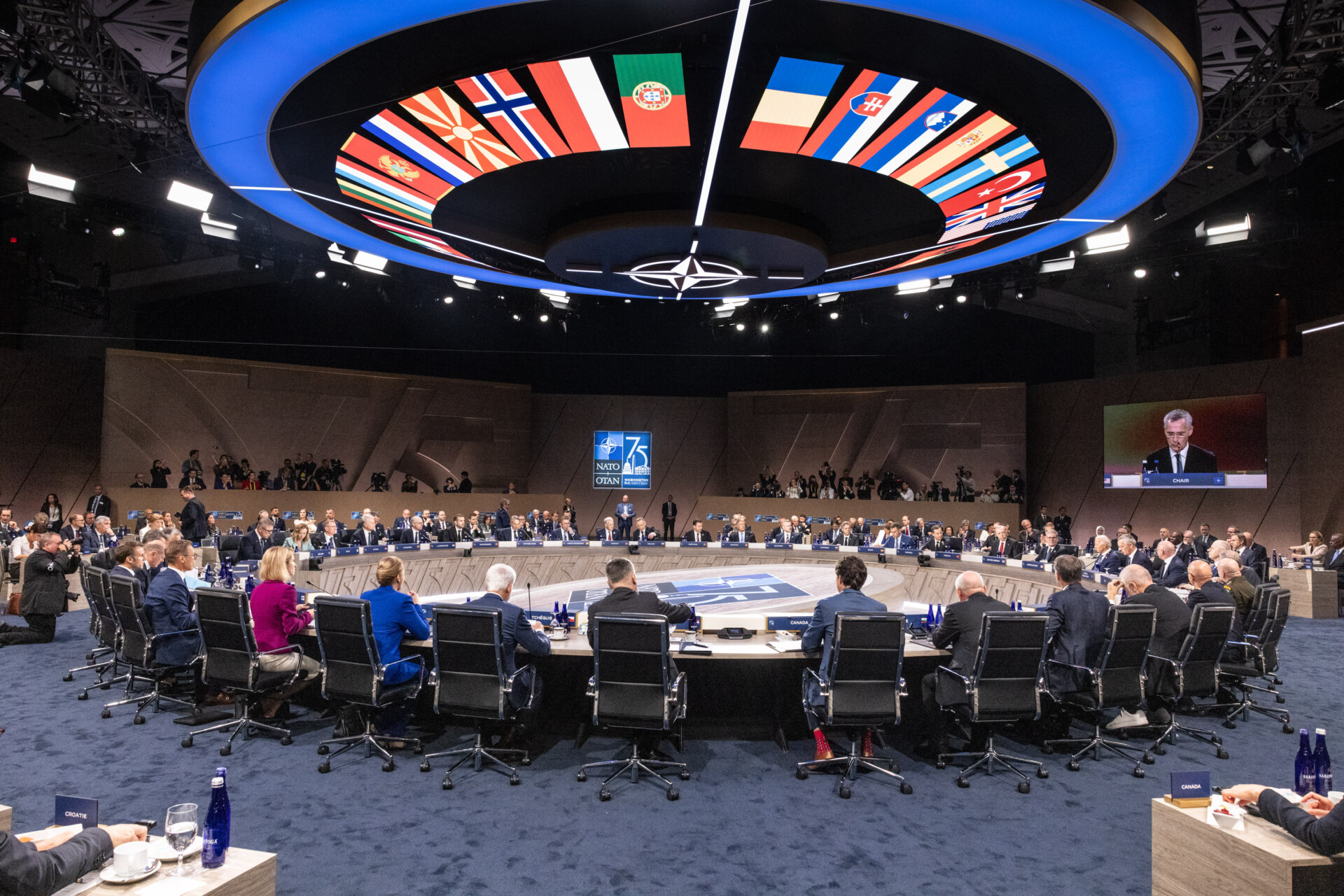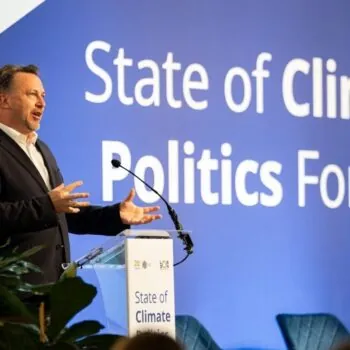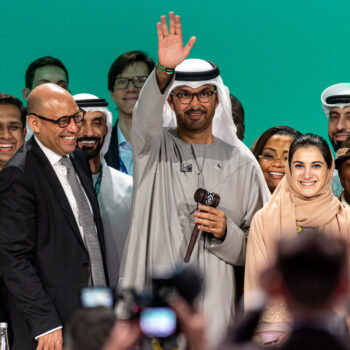- At the NATO Summit in Washington DC, against a backdrop of political uncertainty and continued global challenges including Russia’s invasion of Ukraine, addressing climate security rose as a key sustaining national security and foreign policy priority for the NATO Coalition and its Members.
Story
Last week NATO leaders came together to commemorate the 75th anniversary. Many leaders pledged their ongoing commitment to work together to tackle the security impacts of climate change. This assurance was further reflected in the official communique.
These pledges and policies are welcomed. As the world heats up, the need to address security concerns posed by a changing climate will only increase. Rising seas, droughts and secondary challenges, such as managing the clean economy competition, already bring significant geopolitical, security, and humanitarian challenges that require greater attention. Action taken to combat climate change today is good security policy for tomorrow.
- Several leaders and government officials spoke at length for the need for greater focus on climate security: US President Biden and UK Prime Minister Starmer readout: Days after taking office, UK’s new Prime Minister traveled to DC for the NATO Summit, and in his first exchange with President Biden they touched on the critical work of tackling climate change: “look[ing] forward to working together to deepen U.S.-UK cooperation on economic and climate issues to build a more prosperous and resilient future.”
- Canadian Prime Minister Justin Trudeau: “Overall, climate change risks creating a less stable, less prosperous and less secure world. That is why we act.”
- US Special Envoy for Climate John Podesta: “It [Climate Change] is now the threat. Why? Because of its profound effect on human security.”
- Norwegian Minister of Foreign Affairs Espen Barth Eide: “If you only focus on the current crisis, you may overlook the [climate] trends that will take us to the next crisis.”
Released alongside the Summit, the third edition of NATO’s Climate Change and Security Impact Assessment highlighted both the challenges for NATO’s operating environment and the humanitarian effect of climate impacts. The report outlines that the alliance must contend with the second and third order impacts of climate, such as migration and disruptions to global supply chains. Coinciding with the recent accreditation of the NATO Climate Change and Security Centre of Excellence, the alliance is well on its way towards a robust understanding of and approach to climate vulnerability.
Importantly, the fate of Ukraine was an overriding focus of the NATO Summit. Ukrainian President Volodymyr Zelenskyy also attended the Summit, and exemplifies the very real and pertinent connection between traditional hard national security concerns and necessary climate action. Here, fossil fuel imports and fossil-based energy have too long been a weakness for enemies to exploit. Rebuilding Ukraine with climate-friendly, domestic energy, an effort that is gaining traction amongst Ukrainian civil society, helps Ukraine’s energy security and the planet.
And across a sweltering DC, multiple side events, conversations, and bilateral discussions between policymakers, diplomats, and practitioners in the national security and foreign policy arena pressed on the critical role of climate security. The NATO Communique nicely embodies this commitment: “Climate change is a defining challenge with a profound impact on our security.”
Nations must take bold action on climate and begin to more fully incorporate climate action into their national security and foreign policy strategies.
Quotes
Kaysie Brown, Associate Director at E3G:
“This year’s NATO Summit had many pressing priorities – from ongoing support to Ukraine to shaping a future NATO fit for purpose. It sends a strong signal that climate security was a main issue, given its systemic threat that cannot be overlooked.”
Travis Brubaker, Senior Policy Advisor at E3G:
“Ambitious climate change policy is good foreign policy, and this notion holds especially true to climate security.”
– ENDS –
Available for comment
Travis Brubaker, Senior Policy Advisor, US Climate Foreign Policy
m: +1(202)-870-4350 | travis.brubaker@e3g.org
Notes to Editors
- E3G is an independent climate change think tank with a global outlook. We work on the frontier of the climate landscape, tackling the barriers and advancing the solutions to a safe climate. Our goal is to translate climate politics, economics and policies into action. About – E3G
- For further enquiries email press@e3g.org or phone +44 (0)7783 787 863
- Register for our journalist WhatsApp briefing service to receive updates and analysis for key geopolitical and climate events over 2024 and 2025 on the road to COP29 and COP30: E3G WhatsApp registration for journalists – E3G.



